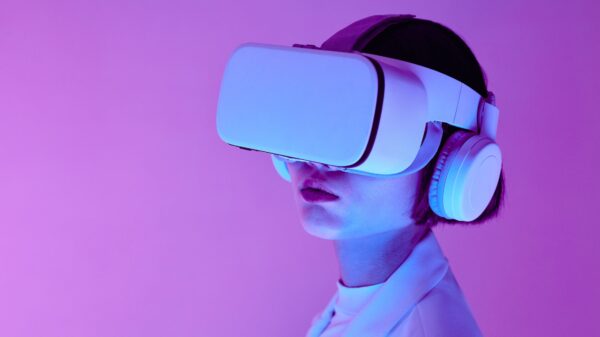In a world where data is king, the ethical implications of Big Data cannot be ignored. The collection and use of massive amounts of personal information raises questions about privacy, ownership, and even democracy itself. As technology advances at a breakneck pace, it’s essential that we strike a balance between innovation and protecting the rights of individuals. In this blog post, we’ll explore the ethics of Big Data – from how it can revolutionize industries to what measures must be taken to ensure responsible data usage. So buckle up for an insightful ride through one of the most pressing issues facing our society today!
What is Big Data?
Big data is a term that describes the large volume of data – both structured and unstructured – that inundates a business on a day-to-day basis. But it’s not just the amount of data that’s important. It’s also the speed at which it must be processed in order to make timely, informed decisions. And, increasingly, it’s the variety of data types that must be factored into those decisions.
In its most simplest form, big data can be defined by three Vs:
Volume: The first V represents the ever-increasing volume of data being generated today. Just think about all of the digital devices we use on a daily basis and how each one generates its own set of data. Then consider all of the interactions each of us has online every day – from social media to online shopping – and you can start to get an idea of just how much data is out there.
Velocity: The second V refers to the speed at which this data is moving or, more specifically, how quickly it must be processed in order for it to be useful. In many cases, real-time processing is required in order to take actionable steps based on new information. For example, if you are monitoring social media for mentions of your brand, you need to be able to process this information quickly so you can address any issues that arise in a timely manner.
Ethical Implications of Big Data
The use of big data has ethical implications because it can be used to infringe on people’s privacy. The way that big data is collected and used can also create inequalities.
Big data is often collected without people’s knowledge or consent. This means that people are not able to control how their data is used. Big data can be used to profile people and target them with ads or other content. This can have a negative impact on people, especially if they are not aware that they are being targeted
Big data can also be used to create inequalities. For example, if employers are using big data to make decisions about who to hire, they may discriminate against certain groups of people. Big data can also be used to manipulate public opinion by spreading false information.
Benefits & Risks of Using Big Data
Big data has the potential to revolutionize the way businesses operate and make decisions. However, with this new technology comes new ethical challenges. This article will explore the benefits and risks of using big data, as well as some of the ethical concerns associated with it.
Benefits:
1. Big data can help businesses make better decisions by providing more accurate and complete information.
2. Big data can help businesses save money by reducing the need for expensive market research.
3. Big data can help businesses improve their products and services by identifying customer needs and trends.
4. Big data can help businesses target their marketing efforts more effectively by understanding customer behavior.
5. Big data can help governments solve social problems and improve public services by identifying patterns and trends in society.
6. Big data can help researchers identify new cures for diseases and develop more effective treatments by analyzing large datasets.
7. Big data can help combat crime by identifying patterns and correlations that would otherwise be undetectable.
8. Big data can improve transportation systems by helping to identify congestion points and optimize routes.
Risks:
1. The misuse of big data could lead to discrimination against certain groups of people, such as those with certain medical conditions or minority groups.
2. The misuse of big data could lead to a loss of privacy for individuals, as companies increasingly collect and store personal information without consent or knowledge.
Regulations & Laws Regarding Data
There is a lot of excitement around data and its potential to revolutionize various industries. However, there are also concerns about how this technology will be used and whether individuals’ privacy rights will be respected.
In order to address these issues, various regulations and laws have been proposed or enacted in different jurisdictions. For example, the European Union has adopted the General Data Protection Regulation (GDPR), which sets out strict rules about how personal data must be collected, used, and protected. In the United States, there is no comprehensive federal law governing data privacy, but there are a patchwork of sector-specific laws, such as the Gramm-Leach-Bliley Act for financial institutions and the Health Insurance Portability and Accountability Act (HIPAA) for healthcare organizations.
It is still early days when it comes to regulating big data, and there is much debate about what direction should be taken. However, it is clear that any future regulation will need to strike a balance between promoting innovation and protecting people’s privacy rights.
Current Practices & Best Practices for Using Data
When it comes to data, current practices are far from perfect. There are a number of issues that still need to be addressed in order to ensure that big data is used ethically and responsibly.
One of the biggest issues is the lack of transparency around how data is collected and used. Companies are often not forthcoming about what data they collect and how they use it. This makes it difficult for individuals to know what information is being shared and with whom. It also makes it difficult to hold companies accountable for misuse of data.
Another issue is the way in which data is often used to target ads and sell products. This can be intrusive and manipulative, and it raises concerns about privacy and consent.
Finally, there are concerns about the security of data. With so much information being collected and stored, there is a risk of data breaches and cyber attacks. This could lead to sensitive information being leaked or stolen, which could have serious consequences for individuals and businesses alike.
Despite these challenges, there are some best practices that can help to mitigate the risks associated with data. These include ensuring transparency around data collection and use, obtaining consent from individuals before using their data, implementing security measures to protect data, and avoiding using big data in ways that could be intrusive or manipulative. By following these best practices, companies can help to ensure that big data is used ethically and responsibly
Opportunities & Challenges of Using Data Ethically
The use of big data has revolutionized the way businesses operate and make decisions. But with the increased use of big data comes increased ethical concerns. Businesses must be careful to balance the need for innovation with the need to protect people’s privacy.
There are many opportunities that come with using big data ethically. Big data can be used to improve products and services, target marketing more effectively, and increase efficiency. However, there are also challenges that come with using big data ethically. These include ensuring that data is collected and used responsibly, protecting people’s privacy, and avoiding discrimination.
Businesses must be aware of these opportunities and challenges when using big data. They must take steps to ensure that they are using big data in an ethical way. This includes being transparent about how data is collected and used, providing people with control over their data, and ensuring that data is used responsibly.
Conclusion
Big data can be an incredible tool for innovation and progress, but it is important to balance the need for growth and development with the respect of individuals’ rights. We must ensure that our data collection and use practices are ethical, secure, and transparent in order to protect people’s privacy while still allowing us to take advantage of big data opportunities. By understanding the implications of big data now, we can shape a more ethical future where privacy is respected without sacrificing innovative potential.









